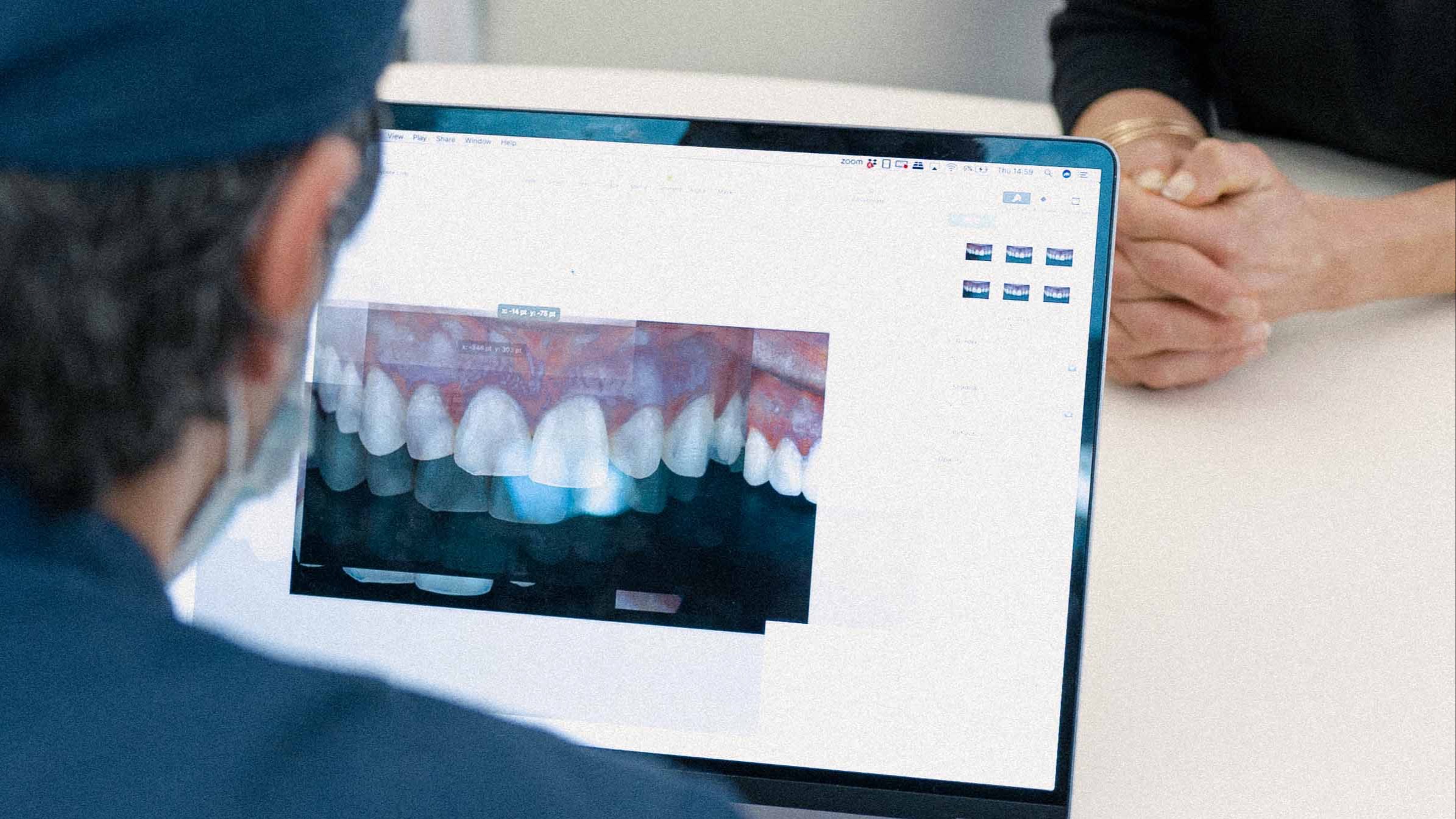Reabilitação Funcional // Functional Rehabilitation

Já sentiu seus dentes desequilibrados ou a sua mastigação ineficaz? Já sentiu alguma dor ou desconforto próximo aos ouvidos, ao abrir ou fechar a boca? Ou a rigidez muscular e a dor também são algo que sente ao longo dos dias?
Se tem algum desses sintomas, saiba que, infelizmente, eles são muito comuns na população adulta. Considerando que, frequentemente, são consequências de grandes mudanças na sua dentição ou na sua boca, como a perda de dentes, maxilares mal posicionados ou apinhamento e deslocamento dos dentes, muitas vezes ocorrem devido a mudanças muito pequenas no contato dos dentes que levam lentamente, ano após ano, a esses preconceitos. Por esses motivos, é muito importante diagnosticar precocemente e atuar na prevenção, a fim de evitar o desenvolvimento de qualquer biomecânica disfuncional.
No IAD, a equipa está focada em avaliar cada caso em toda a sua complexidade e de forma individualizada. Isso significa que, além das inflamações ou infecções que vêm em primeiro lugar na nossa lista de prioridades a tratar, a biomecânica, a forma como todos os dentes, músculos, ligamentos e articulações temporomandibulares trabalham juntos, é o que queremos equilibrar o mais rápido possível, a fim de produzir a máxima estabilidade e conforto para nosso paciente. É o que chamamos de reabilitação oral funcional.
Este tipo de abordagem clínica tem que ser feita numa equipa multidisciplinar, não só de médicos dentistas e higienistas dentários mas, frequentemente, de fisioterapeutas, osteopatas e fisiatras. De facto, os diferentes departamentos trabalham em conjunto sempre que é identificado um caso disfuncional e decidem o tratamento, dependendo da idade do paciente, do número de dentes afetados ou dos elementos extrabucais afetados. Quando temos de abordar um doente com esta patologia, a estratégia e as diferentes fases do tratamento são muito importantes para a estabilidade duradoura do doente. Muitas vezes, a equipe não odontológica tem que começar por estabilizar os músculos e ligamentos, reduzindo sua tensão, antes que a chamada equipe odontológica tenha que agir.
A equipa da IAD Lisbon recomenda um diagnóstico precoce para evitar o desenvolvimento de alterações mais graves na vertente funcional do seu sistema estomatognático. Se acha que tem algum desses sintomas ou condições, faça-nos uma visita!
Marque através do nosso website ou ligue-nos para:
t. +351 211355482 (Call to National Fixed Network)
tlm. +351 932375427 (Call to National Mobile Network)
______________________________________________________________________________
ENG
Have you ever felt your teeth unbalanced or your mastication ineffective? Have you ever had some pain or discomfort close to your ears, as you open or close your mouth? Or is muscle stiffness and pain also something that you feel throughout your days?
If you have any of these symptoms, be aware that unfortunately, they are very common among the adult population. Whereas, they are frequently the consequences of big changes in your dentition or your mouth, such as the loss of teeth, wrongly positioned maxillaries, or teeth crowding and shifting, very often they occur due to very small changes in teeth contact which lead slowly, year after year, to these prejudices. For these reasons, it is very important to early diagnose and act on prevention, in order to avoid the development of any dysfunctional biomechanics.
At IAD, the team is focused on assessing each case in all its complexity and in an individualised way. This means that, besides the inflammations or infections that come first in our list of priorities to treat, biomechanics, the way all the teeth, muscles, ligaments, and temporomandibular joints work together, is what we want to balance as soon as possible, in order to produce the m stability and comfort for our patient. This is what we call functional oral rehabilitation.
This type of clinical approach has to be the work of a multidisciplinary team, not only of dentists and dental hygienists but, frequently, of physiotherapists, osteopaths, and physiatrists. In fact, the different departments work together every time a dysfunctional case is identified and decide the treatment, depending on the age of the patient, the number of affected teeth, or the extra-oral affected elements. When we have to address a patient with this condition, the strategy and the different phases of the treatment are very important to the lasting stability of the patient. Very often, the non-dental team has to start by stabilising the muscles and ligaments, reducing their tension, before the so-called dental team has to act.
Then, after stage 1, as the vast majority of patients with this condition have misplaced teeth or maxillaries, we have to re-position them with orthodontic clear aligners before proceeding with any restorative treatment. If, on the contrary, the teeth are diagnosed as being well positioned but have major wear or structural damage, then it is the work of the prosthodontic department, to address biomechanics and aesthetic at the same time. Finally, maintenance and yearly occlusal and functional control are key to the long-term success and stability of the treatment.
The IAD Lisbon team recommends an early diagnosis to avoid the development of more serious changes in the functional aspect of your stomatognathic system. If you think you have any of these symptoms or conditions, pay us a visit!
Book now on our website or call us:
t. +351 211355482 (Call to National Fixed Network)
tlm. +351 932375427 (Call to National Mobile Network)

